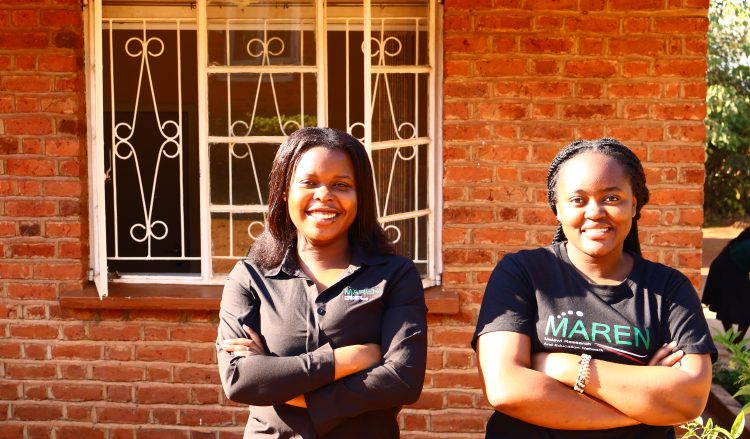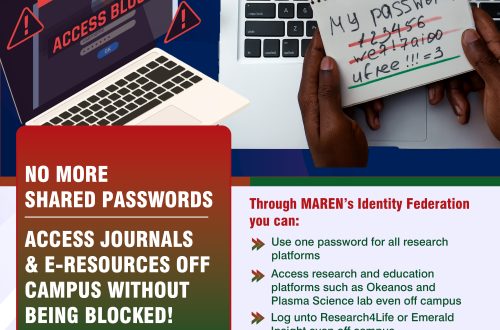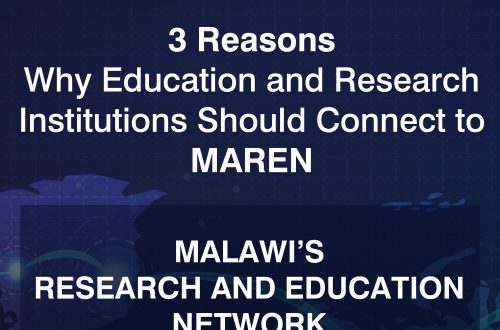
The Malawi Research and Education Network (MAREN) is proud to announce yet another achievement, following the announcement of staff members selected to present papers at the UbuntuNet Connect 2025 Conference. This time, two MAREN staff members, Joana Mhone and Yankho Kamtukulo, are part of a three-member team that has been selected to present at the UbuntuNet Alliance Women Hackathon 2025, which will take place in Harare, Zimbabwe. Under the theme “Innovate for Climate Change Adaptation and Mitigation”, the team will present their project titled “Disaster Shield: A Climate Resilience Scoreboard for Households”. The Hackathon brings together women innovators from across Africa to design and showcase technology-driven solutions that address some of the continent’s most pressing challenges.
The group explained that they were drawn to the Hackathon by its spirit of innovation and inclusivity. “We wanted to push ourselves in a space that celebrates innovation, collaboration, and women’s leadership in technology,” they said. “We saw this Hackathon as a unique platform to showcase our innovation on a regional stage and as an opportunity to test our solution against real-world challenges in a supportive yet competitive environment.”
Preparing the project came with its share of challenges. Aligning diverse ideas into a coherent project was one of the first hurdles, alongside balancing professional and personal commitments. Access to reliable and up-to-date African data also proved difficult, and the team had to be resourceful. “We struggled to find tools and frameworks for deploying our project that were both free and accessible, given our limited resources,” they shared. To overcome these challenges, the team adopted an agile approach, broke tasks into manageable milestones, used open-source platforms, and leaned on each other’s strengths.
Participation in the Hackathon has already had a profound impact on the team. “It has strengthened our confidence as innovators and problem solvers, giving us exposure to global and regional experts, new technologies, and diverse perspectives,” they reflected. They believe the skills gained in rapid prototyping, teamwork, and pitching solutions will support their career growth and position them as role models for other women in STEM.
The biggest lesson learned so far is the power of collaboration and adaptability. “Listening to feedback, iterating quickly, and keeping the end user in mind were key lessons for us,” the team noted. They also emphasized that tackling urgent challenges such as climate resilience requires multiple disciplines working together: “Technology, education, and policy must work hand in hand.”
To aspiring participants, the team offered practical advice: “Start early, be bold, and don’t hold back your ideas, even if they seem imperfect at first. Build a strong, cooperative team and take full advantage of mentorship and networking opportunities. Most importantly, see it not just as a competition but as a learning journey.”
Their decision to participate in the UbuntuNet Alliance Women Hackathon was intentional. “UbuntuNet Alliance is deeply connected to the realities of research, education, and digital transformation in Africa,” they explained. “The focus on empowering women in technology aligned perfectly with our values and aspirations.”
In a message of gratitude, the team said“they are grateful to UbuntuNet Alliance for creating a platform that uplifts and empowers women in STEM. This Hackathon has been more than just a competition—it has been a journey of growth, inspiration, and community. They are Thankful to UbuntuNet Alliance for believing in [their] idea and giving them the opportunity to present on this stage.”
As they prepare for Harare, Joana Mhone, Yankho Kamtukulo, and their teammate look forward to showcasing Disaster Shield: A Climate Resilience Scoreboard for Households under the theme “Innovate for Climate Change Adaptation and Mitigation”, carrying the Malawian flag high and proudly representing MAREN on a continental stage.
Subscribe To Our Newsletter
Get updates and learn from Us
More To Explore

Breaking the Campus Barrier: How Malawian Students and Researchers Are Accessing Knowledge Anywhere
For years, access to global academic resources in many Malawian universities came with clear limitations.

3 Reasons Why Malawi’s Education and Research Institutions Should Connect to MAREN
The Malawi Research and Education Network (MAREN) supports universities and research institutions across Malawi to
